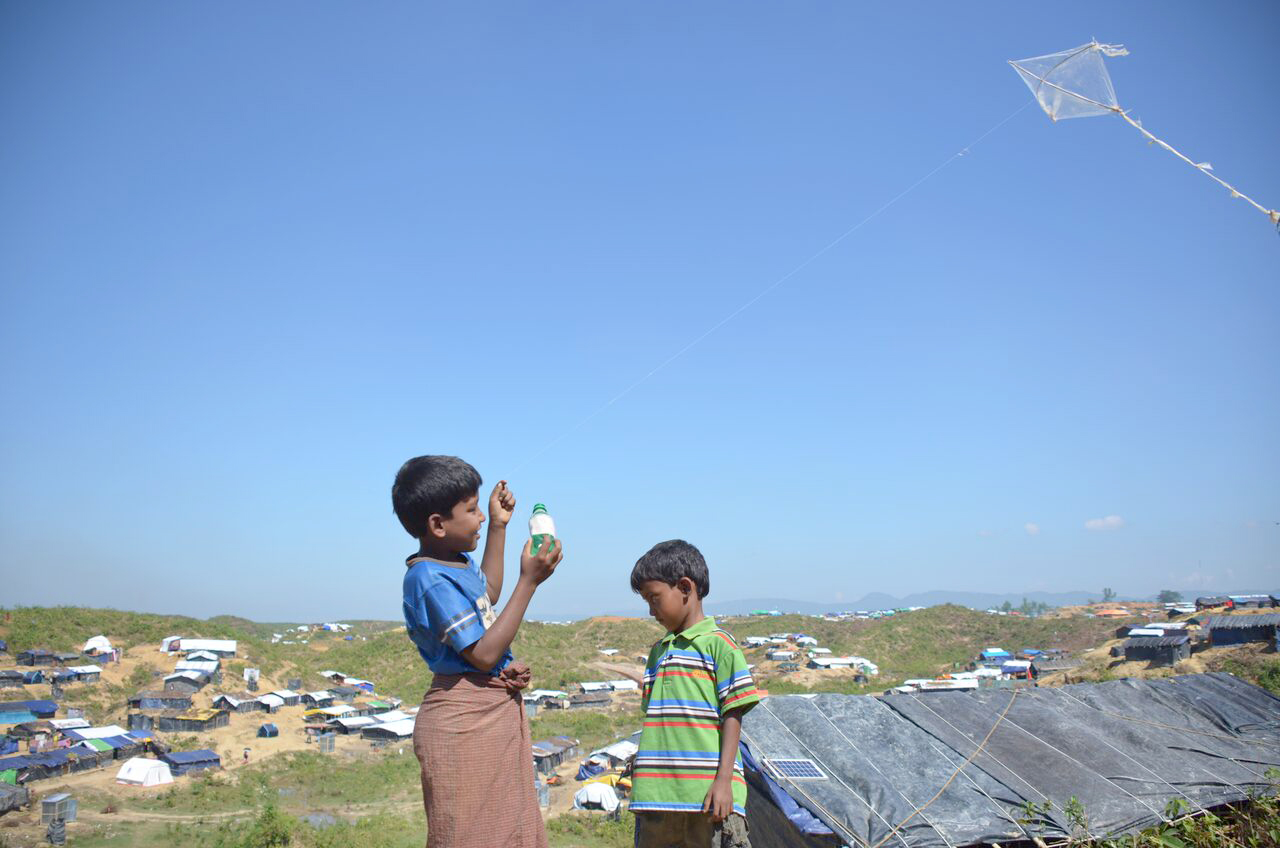The memories left behind
The two brothers can remember quite distinctly how it happened.
Their village is in the Rakhaine state of Myanmar. The army came to their village one morning. There was no warning. They shot some to death. They wounded others. Then they left. Some villagers stayed. Some fled. The army came back again. They tortured the ones who stayed.
Two brothers Faruk and Sharuk left behind all good days and sweet memories back in their home in Myanmar.
They had father, mother and friends, but now they have none! Violence made them orphans like 36,673 other children, some of whom now live with uncle, grandmother, relatives or unknown families in refugee camps in Cox’s Bazar, Bangladesh.
Faruk starts to tell their story.
It was August, and like any other days for brothers Faruk and Shahruk. The two boys, aged eight and five, waved goodbye to their parents and left for school.
When they returned, their home was in flames and their parents were nowhere to be found.
“And what we saw, people were being killed, houses were burnt to ashes, and people were running to save their lives from the violence.
I and my younger brother started running within chaos, people from all around were running. The Rakhaine militaries came out suddenly and instantly started open fire. Sounds were very scary. My brother was crying a lot for fear. It was raining a lot.
During fleeing the village, we lost our mother and did not find her again.
After running enough far we hid in the jungle with other villagers. There we found our grandmother. We felt better. When we asked villagers about my father, they said my father has been killed and no trace of my mother.
We spent days in the roads, sometimes here, sometimes there, sometimes in the jungle. We ate whatever people gave us to eat.”
Taking rest for a while, they again started walking and entered Bangladesh along with some of their neighbors after a long walk. They learnt that their parents and brother were killed from residents of their village, whom they had met on the way.
Numb with shock, Faruk and his brother Shahruk, has hardly ever spoken since the incident.
But they still remember what they left behind.
“Roof of our house was made of Golpata (a species of palm, used to build roof of the dwelling house) House was good.
My younger brother misses cradle”. Sharuk says, “I love to swing in the cradle. It was big enough for two. When we used to go to school or playground my father also used to swing in the cradle.”
Photo :Faruk(8) and Shahruk(5) flies kite as they have hardly any scope to play in the densely camp area.
Farukh says, “I had a bi-cycle in Burma. That was my favorite one. I used to ride and go too far. Many times I went to Mog para (Rakhaine para). They were very good. They used to give us fruits. They gave us big mangoes. They gave us plum. Those were very sweet.
My father used to catch fish . Mother never worked outside. She used to wash our clothes. Mother looked like my younger brother. My mother used to bathe my younger brother. I bathed myself.
We had 200 hectors of farming land. We had fisheries, four cows, four goats and fifty chickens.
The grandfather’s house was amidst Mog para (Rakhaine area). We have many memories there. We used to go with our cousin there. We played with Mog children.
This year we have no new clothes for Eid. Because, we lost our parents before Eid. Father bought new clothes in every Eid festivals. My younger brother cries sometimes for mother and father. My mind also seeks for my parents.
I wish I have my white football here also. I like to play football, to score goals. But here I have no football, no playground. I miss many things, bi-cycle, football, my best friend Samingya. My younger brother misses the cradle that he loved very much.
Will our fate ever be shinny like these? Will we be able to meet our parents again? We do not know, says Faruk in deep mourn.
International Humanitarian agency World Vision expressed its concern that the separated or unaccompanied children were in a vulnerable position and at risk of exploitation, abuse and trafficking. That’s why, World Vision are facilitating 40 Child Friendly Spaces for distressed children and had already taken up programs to identify and help the orphans at the camp area to relieve their shocks.
Photo and Story by Himaloy Joseph mree
